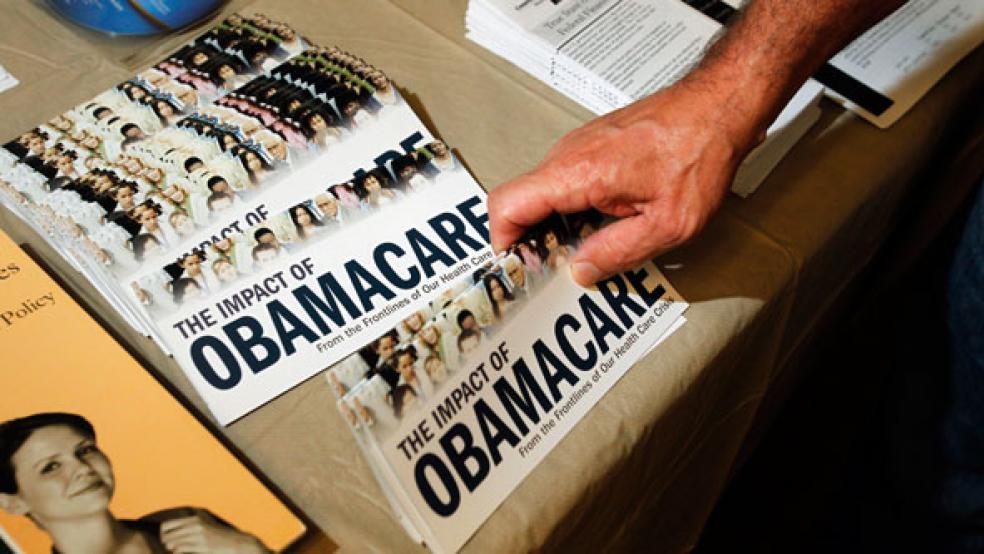Republicans in Congress will never succeed in their quixotic quest to repeal the Affordable Care Act while President Obama remains in the White House, but they are about to achieve the next best thing.
With the likely passage of a bill called the Restoring Americans’ Healthcare Freedom Reconciliation Act, they will finally force the president to veto legislation that would do away with his signature achievement in domestic policy. And, thanks to a revised estimate of the theoretical impact of the new bill repealing Obamacare, they will be able to claim that, in doing so, the president is adding hundreds of billions to the federal deficit.
Related: 10 Health Care Trends That Will Affect You in 2016
The bill passed the Senate last month and — just in case a veto wasn’t enough of a certainty — included a controversial provision that would bar federal funds from going to Planned Parenthood, the non-profit that provides women’s reproductive health care services, including abortions.
The Congressional Budget Office and the Congressional Joint Committee on Taxation had already scored the bill last month, but had to revisit the numbers after the omnibus spending bill that passed in December delayed the implementation of various elements of Obamacare, including the medical device tax and the so-called “Cadillac Tax” on expensive employer-provided health insurance policies.
In sum, according to CBO and JCT, the move to repeal the ACA would keep $317.5 billion from being added to the federal deficit over the 10-year period from 2016 to 2025.
In a tweet Monday morning, House Speaker Paul Ryan wrote, “First priority in 2016: Putting bill on Obama’s desk that repeals Obamacare.” The GOP also dedicated its weekly video address to the nation to the repeal effort.
Related: 7 Obamacare Predictions That Haven’t Come True
Of course, the savings from a repeal of the ACA would come with significant costs that aren’t directly addressed by either the CBO or the JCT, neither of which has a mandate to make such things clear.
First off, the percentage of Americans with no health insurance, currently at a record low, would begin to rise again. The cost of fear and uncertainty doesn’t show up in federal ledgers, but it’s no less real because of it.
Related: 8 Ways Your Health Care and Retirement Benefits Might Change in 2016
Second, taking away health insurance won’t prevent people from getting sick. It will just temporarily prevent the uninsured sick from seeking care, meaning that they will be likely to get sicker, until they are eventually forced to seek emergency care.
And because hospitals are not allowed to deny care to seriously ill patients who don’t have the ability to pay, those costs have to be absorbed somewhere. If history is any guide, they will be absorbed by individuals and employers, whose premiums will rise in order to cover the costs of caring for the uninsured. So yes, the bill would reduce the deficit in the medium term, but the same people whose taxes would help service the federal debt will just wind up paying the cost through a different channel.
Finally, there’s the question of what repeal would mean for the country in not just the short- or medium-term, but the long-term. The CBO/JCT analysis shows deficit savings peaking in 2020, and then slowly starting to decline. One thing that many seeking to repeal Obamacare often forget is that anybody who lives long enough will eventually be eligible for government-funded health care through Medicare.
If tens of millions of Americans were cut off from reliable preventive health care in 2016, the government would eventually find itself saddled with the care of sicker and sicker Medicare patients in 2026 and beyond, with an impact that, while not in the purview of CBO/JCT analysis, would clearly be expensive.
Of course, all that could be avoided by repealing Medicare, too. Oddly, that doesn’t appear to be on the table.





